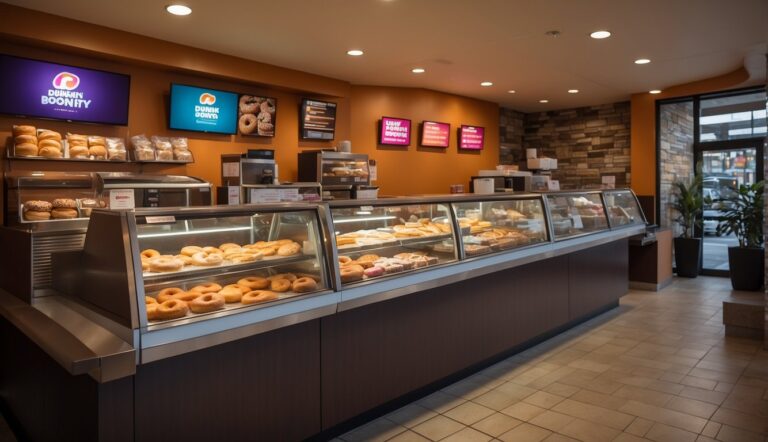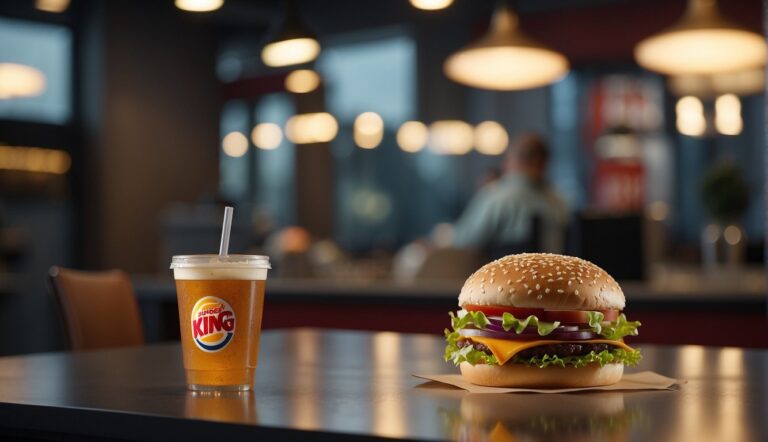100 Waiter Interview Questions: Essential Queries for Restaurant Hiring

Looking to ace that waiter job interview? You’ve come to the right place. Knowing what questions you might face can give you an edge.
This list of 100 waiter interview questions helps you prepare effectively, boosting your confidence.

Whether you’re new to the service industry or have years of experience, understanding the questions interviewers ask is crucial.
You’ll find questions ranging from how you handle customer complaints to working in a fast-paced environment will help you succeed.
Feel ready to demonstrate your skills and grab the job you want.
Understanding the Role

The waiter position is essential in restaurant operations. You ensure guests have a pleasant experience while having food and drinks. Knowing your duties helps you succeed in the hospitality industry.
Overview of Waiter Responsibilities
As a waiter, your main role is to provide excellent customer service. You take orders, serve food, and address customer needs.
Being a team player is important. You work with kitchen staff to ensure orders are correct.
You handle payments and manage tables efficiently. Your knowledge of the menu helps you recommend dishes and answer guest questions. This makes the dining experience better for everyone.
Your role includes maintaining cleanliness in your work area to promote a welcoming environment.
10 common waiter interview questions
Here are 10 common waiter interview questions along with sample answers to help you prepare for your interview:
- What qualities do you think are important for a waiter?
- Sample Answer: “I believe that good communication skills, attention to detail, and a friendly demeanor are crucial for a waiter.”
- How do you handle difficult customers?
- Sample Answer: “I always remain calm and listen to the customer’s concerns. I try to empathize with their situation and find a solution that satisfies them. If needed, I would involve a manager to ensure the issue is resolved appropriately.”
- Can you describe a time when you provided excellent customer service?
- Sample Answer: “In my previous job, a guest had a special dietary restriction. I took the time to discuss their options with the kitchen staff and recommended a customized dish. The guest was very appreciative.”
- How do you prioritize your tasks during a busy shift?
- Sample Answer: “I prioritize tasks by assessing the needs of my tables and the flow of service. I focus on taking orders and delivering food promptly while ensuring that I check in with customers regularly to see if they need anything else.”
- What would you do if you made a mistake with an order?
- Sample Answer: “If I realized I made a mistake, I would immediately inform the customer, apologize for the error, and rectify it as quickly as possible. I would ensure they receive the correct order and offer a small gesture, like a complimentary drink, to make up for the inconvenience.”
- Why do you want to work as a waiter?
- Sample Answer: “I enjoy working in a fast-paced environment and interacting with people. Being a waiter allows me to combine my passion for customer service with my love for the food industry.”
- How do you handle stress during peak hours?
- Sample Answer: “I thrive under pressure by staying organized and focused. I prioritize my tasks and maintain a positive attitude. If I feel overwhelmed, I take a moment to breathe and regroup before tackling the next task.”
- What is your experience with handling cash and processing payments?
- Sample Answer: “In my previous role, I was responsible for handling cash and processing card transactions. I always double-checked my cash drawer at the beginning and end of my shifts to ensure accuracy and maintained a clear record of all transactions.”
- How do you ensure that you remember orders correctly?
- Sample Answer: “I use a combination of techniques to remember orders, such as repeating the order back to the customer and writing it down immediately.”
- What do you know about our restaurant?
- Sample Answer: “I’ve taken the time to research your restaurant and am truly impressed by the values and philosophy that drive your business. I admire your commitment to using locally sourced ingredients, which not only supports regional farmers and producers but also ensures the highest quality and freshness in your dishes.
- This focus on sustainability and quality is something I deeply resonate with, as I believe that great food starts with the best ingredients.
- Additionally, I really appreciate the diversity of your menu. It’s clear that you cater to a wide range of tastes and dietary preferences, which reflects a genuine understanding of your customers’ needs. Offering such variety while maintaining a high standard of taste and presentation speaks volumes about the expertise of your culinary team.”
Core Skills for Waitstaff
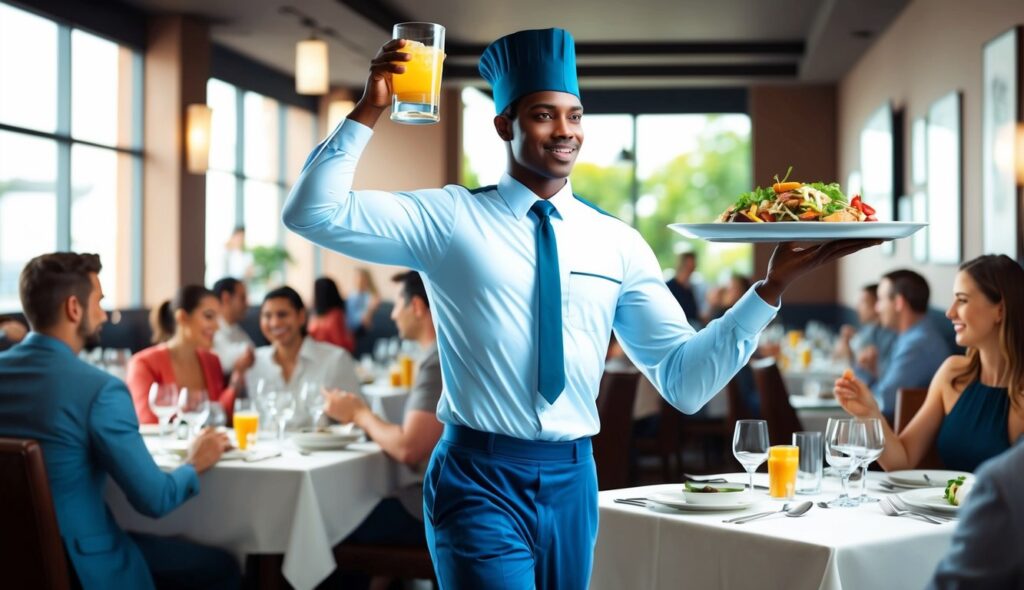
To succeed as waitstaff, communication, time management, and multitasking are essential. You also need strong problem-solving abilities to handle any challenges in the restaurant environment.
Effective Communication Skills
As a waiter, you must communicate clearly with both guests and kitchen staff. For guests, it’s crucial to listen carefully to their needs and preferences. When speaking to the kitchen, ensure orders are clear to avoid mistakes.
Being polite and friendly enhances your interaction with customers. This encourages positive dining experiences. Eye contact and a calm tone help in delivering excellent service.
Don’t forget the non-verbal cues. Body language and facial expressions can convey a welcoming attitude to diners. Being approachable creates a comfortable atmosphere for guests.
Time Management in a Fast-Paced Environment
Restaurants can get hectic, especially during peak hours. Effective time management is crucial. Prioritize tasks by attending to urgent matters first, like taking orders and serving food promptly.
Use any downtime to set up tables, refill supplies, or check on completed tables. Staying organized ensures you don’t miss important tasks.
Keep an eye on the clock to manage the time spent on each table. This helps in maintaining a steady flow, ensuring all guests receive prompt service without unnecessary delays.
Adaptability and Multitasking Abilities
Shifts can be unpredictable, requiring you to juggle multiple tasks. You might need to seat guests, take orders, and serve meals, often at the same time. Adaptability helps in adjusting to any sudden changes.
Develop a system to manage several tables efficiently. This could include memorizing menu items so you can easily answer questions from guests while handling other duties.
Flexibility means adjusting to various situations, like handling a larger crowd or switching tasks quickly, ensuring seamless service throughout your shift.
Problem-Solving in Restaurant Settings
Restaurants can present unexpected challenges, such as a mix-up in orders, unplanned staff shortages, or customer complaints. Quick and effective problem-solving skills are essential.
For order issues, verify with the kitchen staff and resolve discrepancies promptly. If a customer is upset, listen actively, apologize, and offer a solution like a discount or replacement.
Being proactive can also prevent problems. Check frequently with customers to ensure satisfaction, and communicate any potential delays to manage expectations.
The Job Interview

When preparing for a waiter interview, you’ll focus on how to present yourself, answer typical questions, and highlight teamwork, interpersonal, and organizational skills. Confidence and clear communication are key.
Preparation for a Waiter Interview
Begin by learning about the restaurant’s menu and services. This helps you better connect with what the employer values. Dress smartly to make a good first impression.
Practice speaking clearly and confidently. Research common interview questions and rehearse your answers. Be ready to describe past experiences that show your customer service skills. Create a list of questions you might want to ask about the job. This shows you are genuinely interested.
Commonly Asked Interview Questions (with Answers)
You might be asked about how you handled a difficult customer. A good response would include staying calm and resolving their issue promptly, highlighting your problem-solving skills.
Expect questions like “What makes you a great team player?” Stress your ability to work well with others to achieve shared goals. For questions like “Why do you want to work here?”, reflect on what excites you about the restaurant.
When asked about your strengths, tailor your answers to what the position requires, such as excellent communication or multitasking abilities.
Showcasing Teamwork and Collaborative Skills
In a restaurant, teamwork is crucial. Share examples from past jobs where you worked in a team to solve problems or improve service. Mention how you coordinated with kitchen staff to ensure orders were accurate and timely.
Provide specific examples. Maybe you mentored a coworker or led a team during a busy shift. Highlight experiences that demonstrate commitment to team success.
Discuss how you handle team conflicts. Showing that you value cooperation and can manage disagreements is essential.
Conveying Interpersonal and Organizational Skills
Communication with customers and team members is key for a waiter. Explain how your interpersonal skills help you understand customer needs and respond appropriately.
Being organized allows you to manage multiple tables efficiently. Share strategies you use to keep track of orders and prioritize tasks during busy times.
Describe tools or methods you have used, such as using technology for order tracking or maintaining a neat workspace. These examples reinforce your ability to stay organized under pressure.
List of 100 Waiter Interview Questions
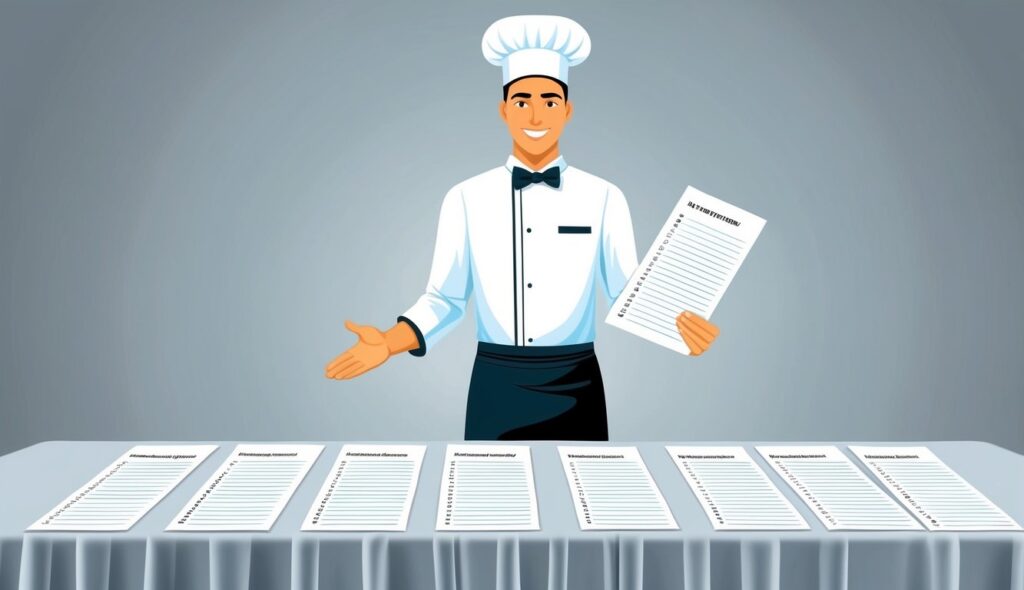
- How do you handle difficult diners who are unhappy with their meal?
- Can you describe a time you provided exceptional service despite challenges?
- How would you upsell a dessert to a diner who seems indecisive?
- What steps do you take to ensure a pleasant dining experience for guests?
- How do you prioritize tasks during a busy service period?
- Describe your experience with handling cash and credit transactions.
- Can you give an example of when you had to manage multiple tables at once?
- How do you maintain a positive attitude during long shifts?
- What techniques do you use to remember menu items and specials?
- How do you handle a situation where a table is ready to order, but you are busy?
- Describe how you would handle a misunderstanding with a customer about their order.
- What steps would you take if a customer has an allergy concern?
- How do you ensure accuracy when taking orders to avoid mistakes?
- Can you discuss a time when you turned a negative dining experience into a positive one?
- Describe your approach to handling a diner who is in a rush.
- How do you deal with stress or pressure during peak hours?
- What is your strategy for making recommendations to diners?
- How do you plan to contribute to creating a team-oriented environment?
- Discuss how you have dealt with a co-worker who was not pulling their weight.
- What is your approach to upselling beverages like wine or cocktails?
- How do you communicate with kitchen staff to ensure timely service?
- Describe a way to subtly encourage a guest to order an appetizer.
- How do you remember regular diner’s preferences or names?
- Can you describe a time you received positive feedback from a guest?
- What strategies do you use to keep your section clean and organized?
- How do you manage your time when you have many tables to serve?
- Describe your approach to introducing special promotions to guests.
- How would you handle a complaint about the temperature of food?
- How do you ensure that your service is consistent every day?
- What’s your approach to handling a guest who is extremely particular about their order?
- How do you respond to a diner who asks for a refund for their meal?
- Describe your experience with using a POS system for taking orders.
- How do you suggest a new dish to someone set on ordering their regular choice?
- What is your plan to upsell when a table orders only entrees?
- How would you deal with a language barrier while taking an order?
- Describe a situation where teamwork improved your service performance.
- How do you maintain exceptional service when short-staffed?
- What experience do you have with wine pairings and recommendations?
- How do you handle a situation where a guest’s order is taking longer than expected?
- How do you deal with criticism from supervisors or diners?
- What actions do you take if a customer leaves a poor tip despite good service?
- Describe your approach to learning a new menu quickly and effectively.
- How do you manage unexpected rushes of diners without compromising service?
- How do you remain attentive to multiple tables when the restaurant is busy?
- Describe a technique you use to effectively communicate with non-English speakers.
- How have you handled a situation where you were not familiar with a diner’s requested dish?
- Can you describe a creative way you improved a diner’s experience?
- What is your method for resolving disputes between diners?
- How do you handle special requests that deviate from menu offerings?
- Describe your strategy for keeping guests engaged and informed while they wait.
- How do you approach a group of diners with differing dietary needs?
- What would you do if a guest becomes overly intoxicated?
- How do you ensure that table settings are always perfect before guests arrive?
- Describe your approach to being welcoming and personable with new faces.
- How do you respond if a diner insists their portion size seems incorrect?
- Describe an instance where you efficiently multitasked during a busy shift.
- What steps do you take when a guest requests a dish that’s no longer available?
- How do you think your role contributes to the restaurant’s reputation?
- Describe your approach to accommodating last-minute reservations.
- How do you handle serving a difficult or high-maintenance customer?
- How do you prioritize customer service against cleaning responsibilities?
- Describe how you determine which tables need the most immediate attention.
- How do you handle and prevent potential cross-contamination for allergy concerns?
- Describe how you build rapport with regular customers.
- Can you explain your technique for handling large parties effectively?
- How do you handle feedback and adapt to new policies or procedures?
- Describe your strategy for managing food delivery delays to customers.
- How do you engage with customers who seem uninterested or distracted?
- What is your approach to handling complaints about service speed?
- Describe your biggest challenge in waiting tables and how you dealt with it.
- How do you identify opportunities to suggest complementary items to guests?
- Describe a time when you exceeded a diner’s expectations.
- What strategy do you use to ensure timely follow-ups with your tables?
- How do you ensure that a diner’s experience ends on a high note?
- Explain how you’d handle being double-booked with reservations.
- What steps do you take when you notice declining service standards in your team?
- How do you maintain enthusiasm throughout an extended shift?
- Describe how you prepare for a shift to ensure readiness.
- How do you demonstrate patience with demanding diners?
- What is your approach to clarifying a vague order from a diner?
- Describe a strategy you use for successfully upselling premium items.
- How do you ensure consistent communication with serving and kitchen staff?
- How do you handle it when a customer disputes a bill?
- Explain how you adjust handling orders based on different meal rush timings.
- Describe your approach to managing portions of tables seated simultaneously.
- How do you safeguard against overworking or burnout?
- How would you help diners with food allergies select safe menu choices?
- Describe how you balance accommodating guests’ needs with restaurant policy.
- What’s your approach when a dine-and-dash situation occurs?
- How do you handle a shift when equipment malfunctions, like a broken register?
- Explain your technique for making guests feel valued during peak hours.
- Describe how you manage customers’ expectations when dining wait times are long.
- What steps do you take if a customer reports health or safety concerns?
- How do you adjust your service to cater to families with young children?
- Describe your strategy for upselling a new cocktail special with a meal.
- How do you negotiate between conflicting diners’ requests simultaneously?
- How do you keep steady communication to prevent mix-ups in large orders?
- Explain a time when your fast thinking resolved a service issue.
- What do you do if a child in your section causes a disturbance?
- Describe your method for assessing service improvements through customer feedback.
Also Check: 100 Waitress Interview Questions
Frequently Asked Questions Waiter Interview Questions
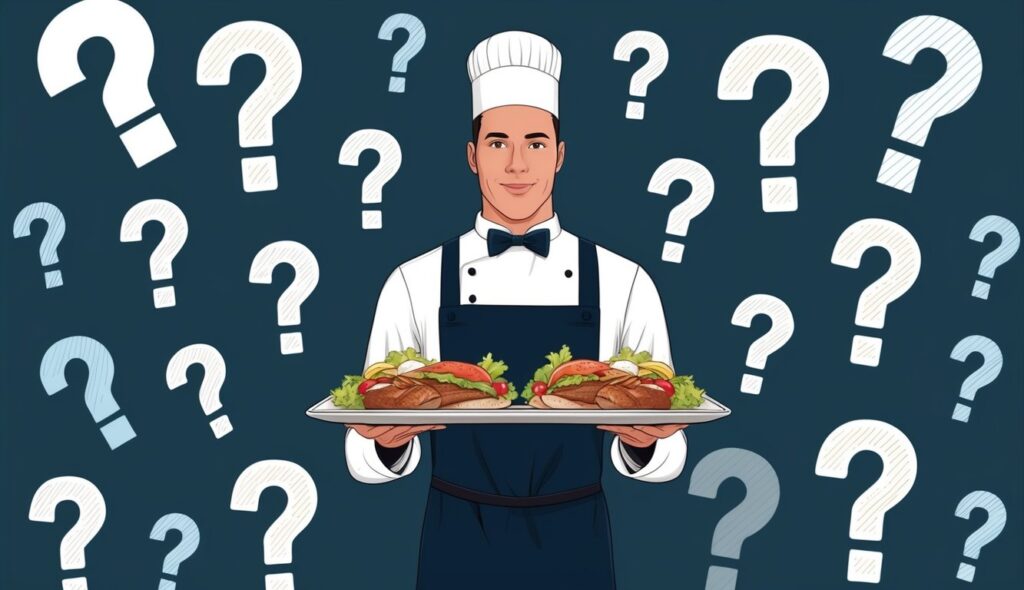
When interviewing for a waiter position, you may be asked about your past experience, handling complaints, managing tasks during busy times, and maintaining service quality.
These are important to show your skills in customer service and efficiency in the restaurant environment.
Can you describe your previous experience in customer service or hospitality?
Discuss any relevant roles you’ve held. Highlight tasks like taking orders, serving food, or managing customer inquiries. It’s useful to mention any specific skills you’ve developed, such as problem-solving or multitasking.
What would you do if a customer made a complaint about their meal?
Explain how you would listen to the customer’s concerns. Assure them you will address the issue promptly. You could involve the kitchen staff or manager if needed. Showing empathy and taking swift action is crucial.
How do you prioritize tasks during busy periods in the restaurant?
Talk about your ability to stay organized under pressure. Mention techniques like creating a mental checklist or focusing on urgent tasks first. Being able to manage time well ensures you provide good service even during rush periods.
Could you provide an example of how you’ve dealt with a difficult customer in the past?
Share a specific experience where you successfully resolved a challenging situation. Describe the steps you took and how you managed to turn a negative experience into a positive one for the customer. Emphasize communication skills and patience.
How do you maintain a high level of service while ensuring tables are turned over efficiently?
Discuss strategies like staying aware of the dining room status and optimizing service time without rushing customers. Mention any methods to clear and reset tables swiftly while ensuring each guest feels attended to. Balancing speed and service quality is key.
All the Best !



